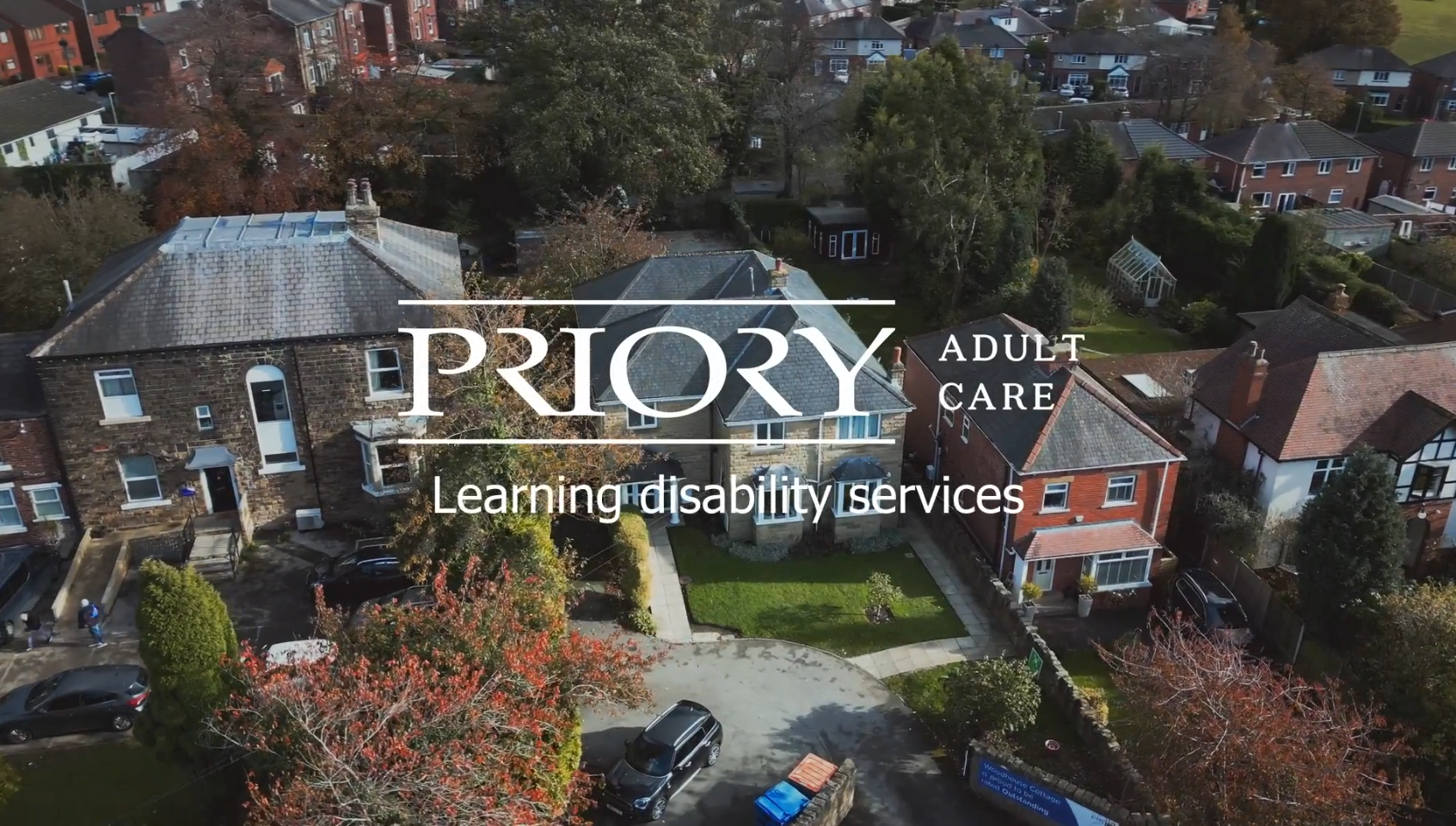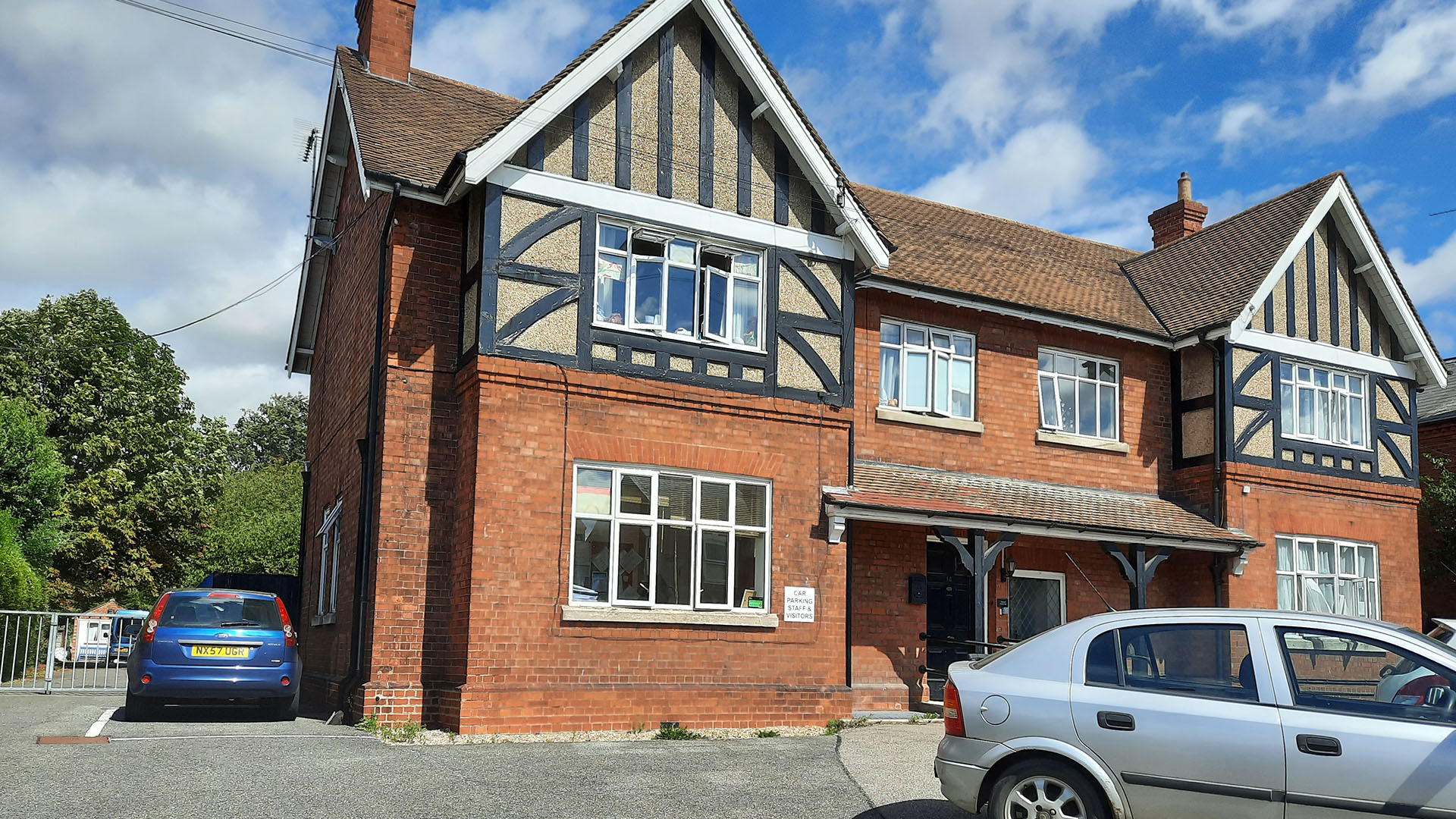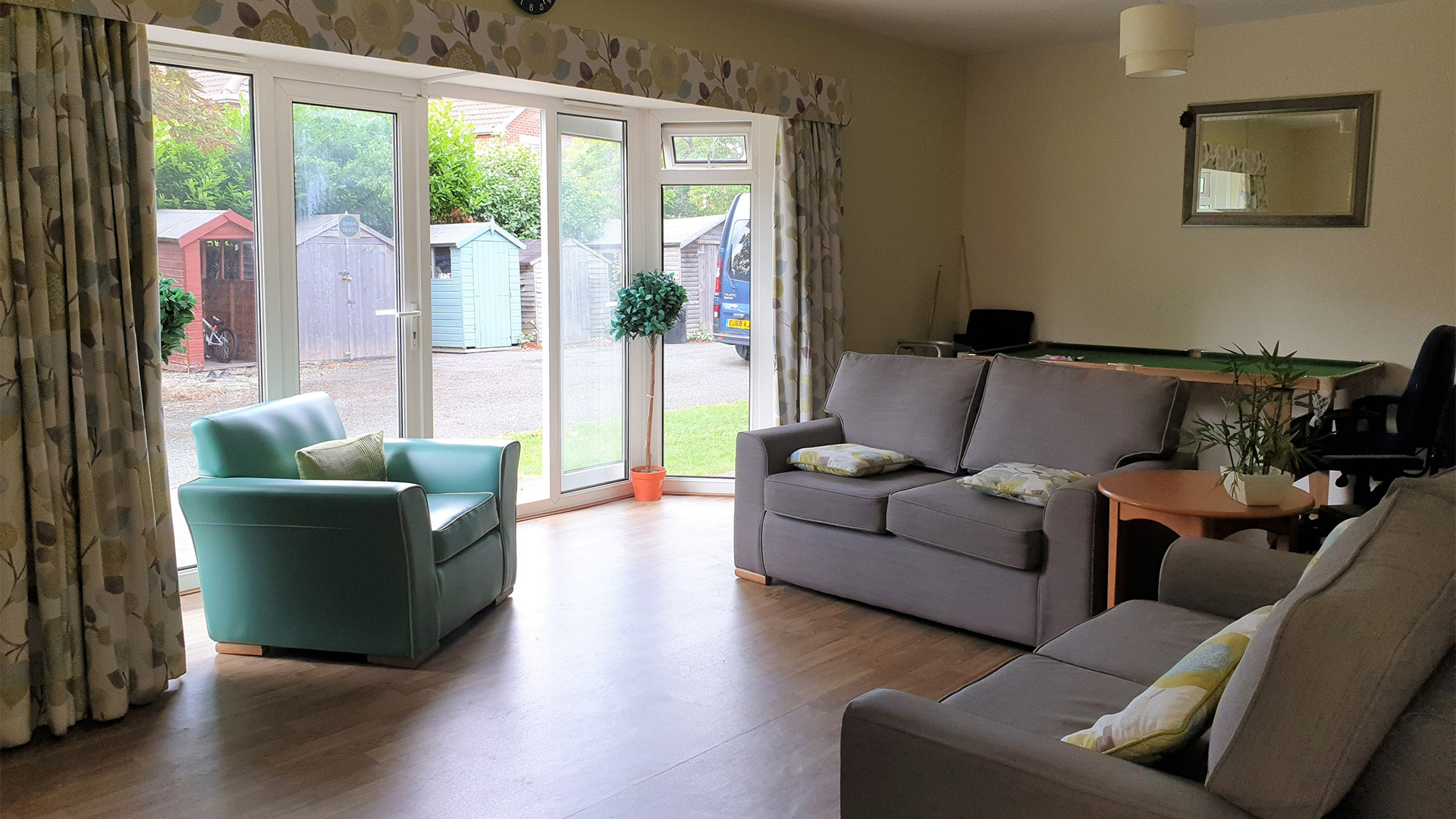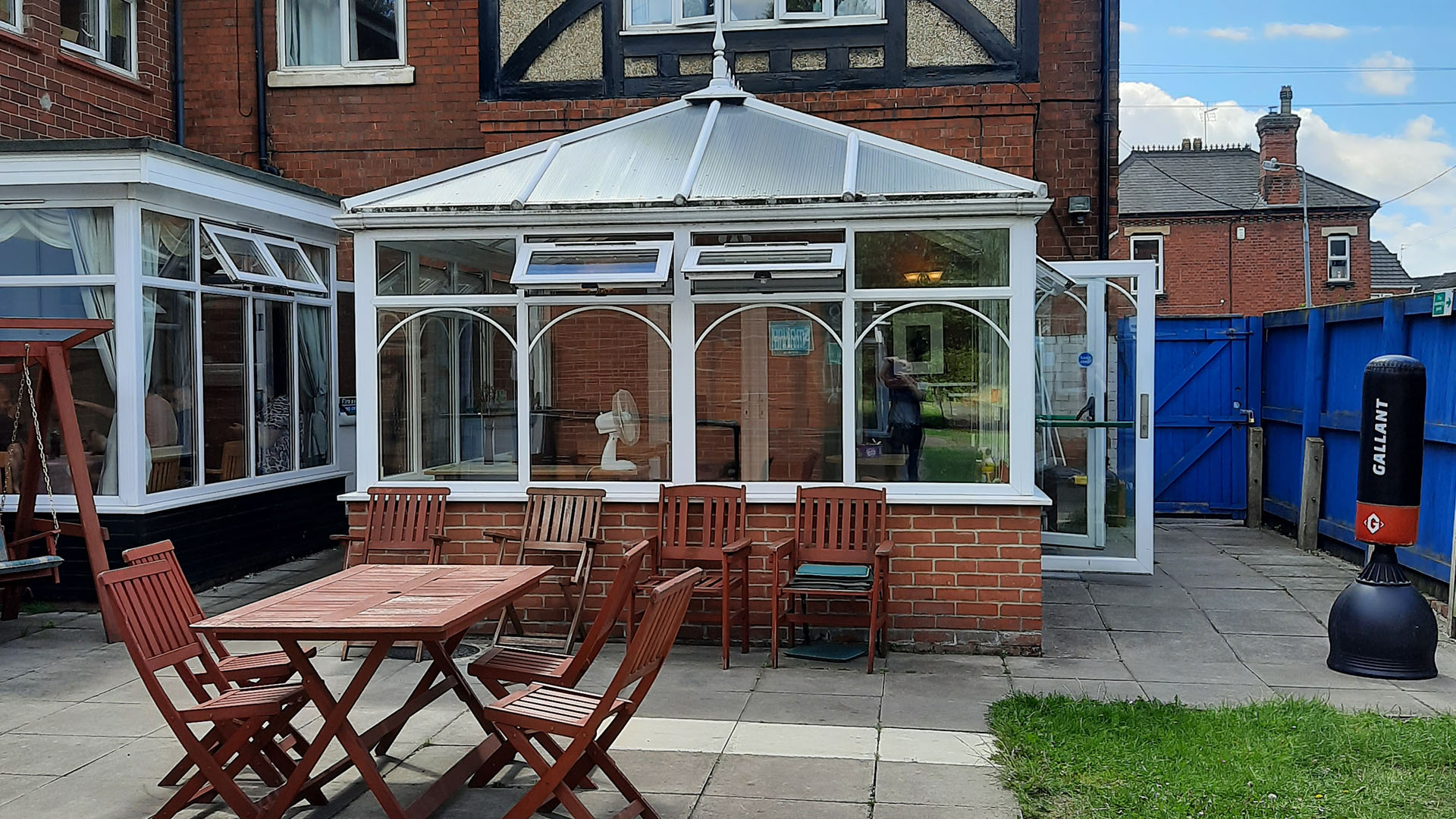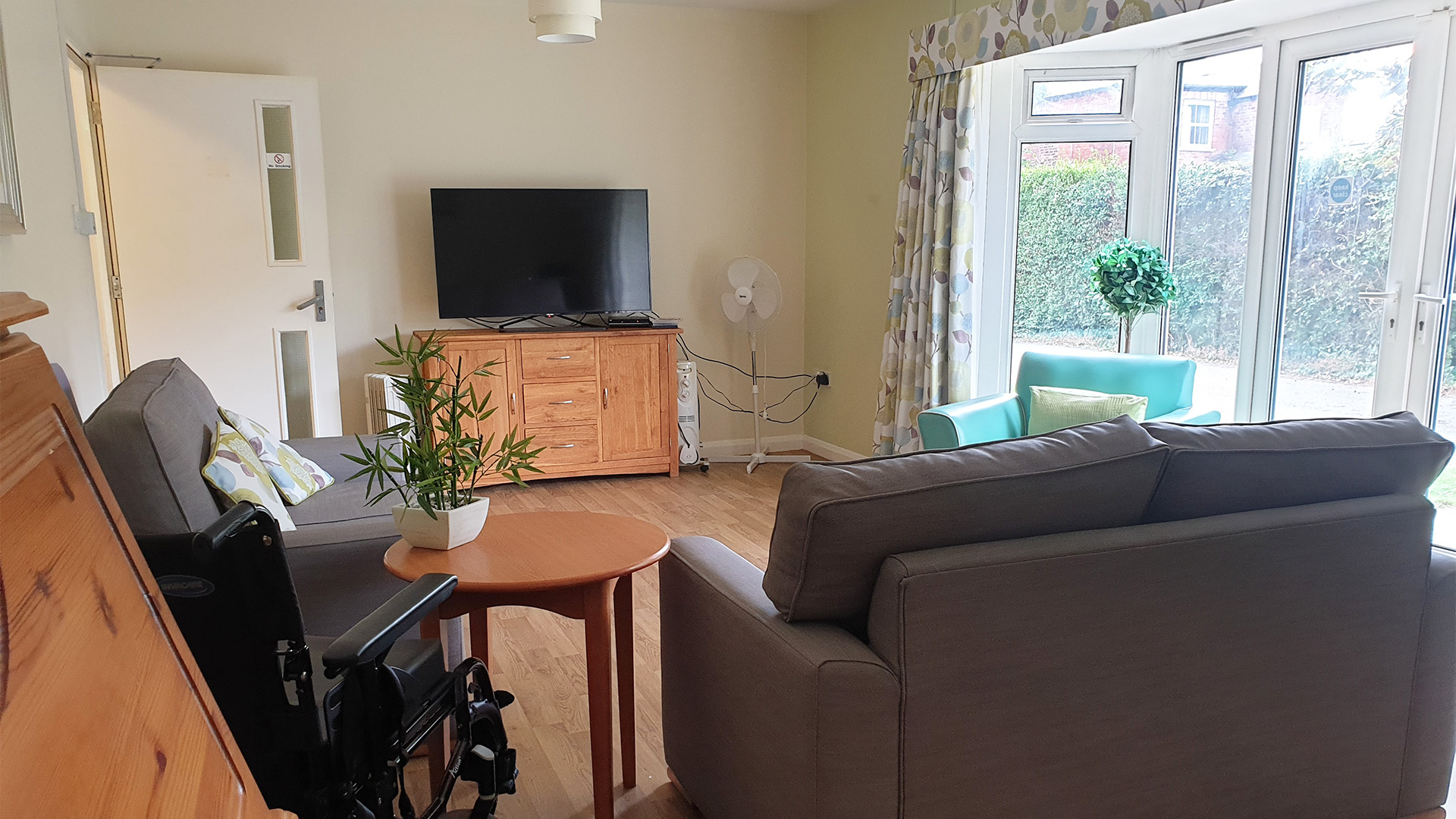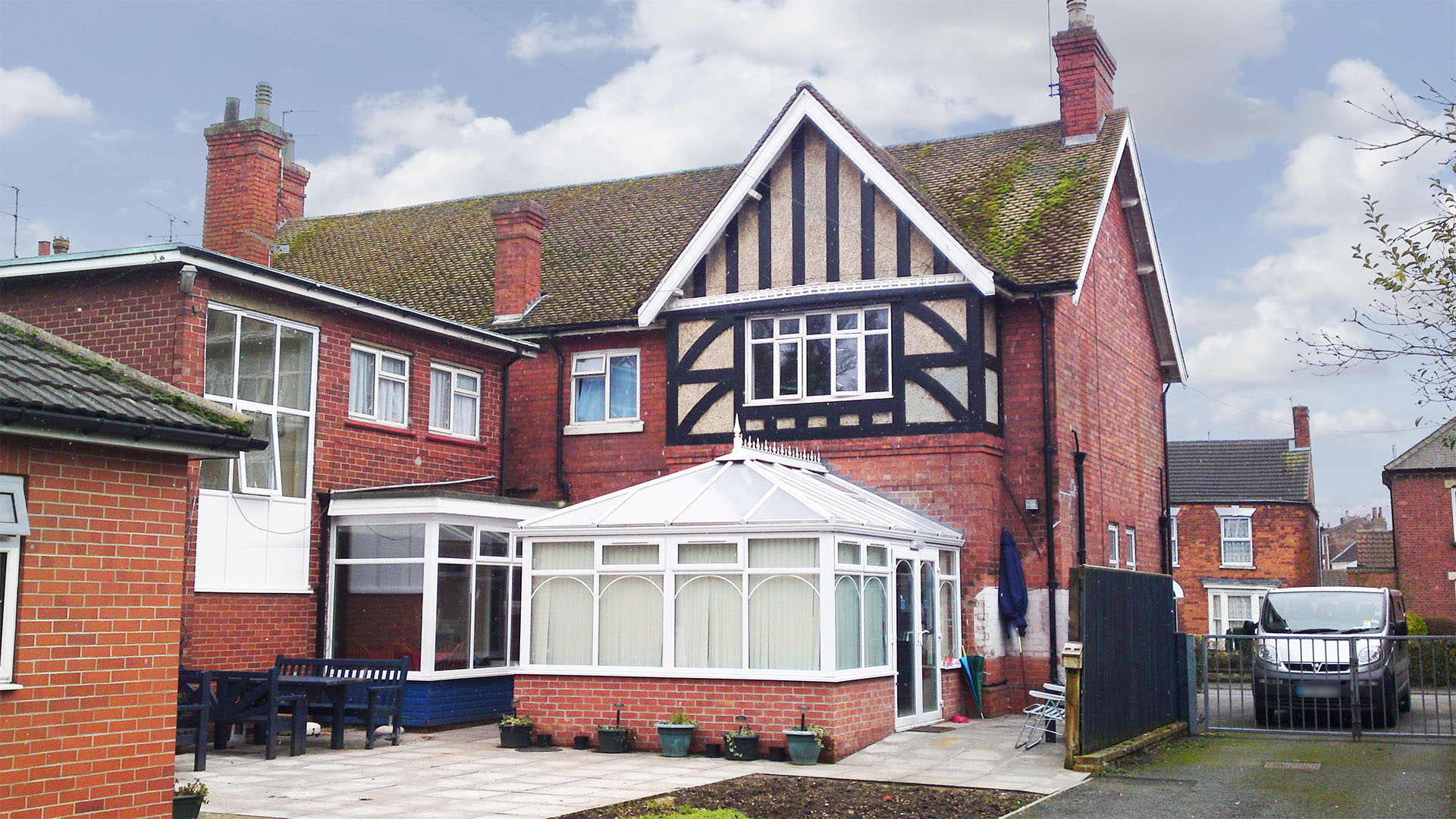About this location
Ashridge is located in a quiet street in Boston. It offers residential support for 18 adult males and females with a primary learning disability diagnosis.
We provide residential support in a homely environment in the community, supporting our residents with a positive behaviour support (PBS) approach. We want to help each person we care for to learn the skills they need to live a healthier and happier life back in the community.
As well as people with a learning disability, we can also support people who may have:
- Autism
- Mental health needs
- Difficulties with communication
- Mild to moderate behaviour that may challenge
- Epilepsy
Services at a glance
Click here to enable this content
About our service
Our facilities and environment
The main communal house, which is large and detached, has lots of space, including a large garden, and offers a relaxed, homely environment.
Our bedrooms are split over two floors. There are 12 bedrooms altogether in the front of the house, with a further 6 in an attached bungalow at the rear of the property. All our residents have access to communal bathrooms.
There are two kitchens throughout the home, one that is accessible for the residents, to encourage and promote their independence in a safe environment.
In summary, we offer:
- A large lounge with plenty of seating
- Kitchen and dining room
- Well-equipped activities room
- Utility room
- Communal bathroom
- Communal wet room
We also have a very large garden, complete with:
- Secure fencing
- Lawn
- Patio
- Communal seating
- Wheelchair access
We also have a mobility-adapted vehicle to help us to meet the needs of the people we support.
Our bedrooms
All of our bedrooms are comfortable, welcoming and can be personalised to individual tastes. Our bedrooms have robust, low arousal furniture.
In addition, our ground floor bedrooms in our house and bungalow are wheelchair accessible and Disability Discrimination Act (DDA) compliant.
Our approach to support
Everybody who lives at Ashridge has their own person-centred care plan, which is co-produced with input from the individual, their family members and professionals involved in their care. We aim to help everyone in our care to make their own choices about the support they receive. This may include support in a number of areas, such as going out into the community, personal care, cooking and cleaning, and maintaining family relationships, managing finances and attending health appointments.
Our support approaches at Ashridge include:
- PBS
- Occupational therapy
- Physiotherapy
- Speech and language therapy (SaLT)
- Psychology
We have support from a local multidisciplinary team (MDT) to offer these services. In addition, we use tools such as the Outcomes Star™, including the Spectrum Star™ to support our residents to achieve their goals.
The lengths of the placements that we offer at Ashridge can be transitional, short-term, medium-term or long-term residential, depending on the needs of each person.
Activities
We focus on supporting our residents to grow their independence. For some people, this may mean developing their daily living skills within the home. For others, this could be accessing work or educational opportunities in the local community.
Exclusion profile
- Those who require a hoist
- People under the age of 18
Pathways
Through our network of healthcare, residential and supported living facilities, we provide unique care pathways which help the people we support to progress towards greater independence. Every individual we support is provided with a bespoke pathway plan, tailored according to their individual needs. We aim to ensure that each person is supported to live a fulfilling and active life in the community.
Our team
Our highly experienced team consists of:
- Service manager
- Deputy manager
- Support worker
- Housekeeper
- Cook
- Maintenance assistant
Our team receives specialist staff training, designed to meet the needs of each individual we support. This includes:
- Makaton training
- Diabetes management
- Epilepsy awareness
- Dysphasia training
A message from our site leader

We believe that our home is your home and that everyone staying with us deserves to live their best life. As a staff team, we feel that we give our residents the ability to believe that they can achieve anything in life
Ashridge’s site leader
Comments from our residents and their family and friends
We are happy in our home; we get to go out for drinks and lunch with staff and they make it fun. We all love living here and the support we get from staff is amazing
Family and friends FAQs
How does home leave work?
We support our residents to attend family events and visit home. We will work with them and their loved ones to ensure possible risks are managed and that everyone is supported. This may mean the individual’s key worker will come along on the visit.
Can friends and families visit?
Family and friends are welcome to visit and join in any activities with their loved one. We do ask that we are informed in advance of all visits so we can ensure that it is a positive experience for everyone. Unfortunately, we cannot cater for visitors to stay overnight.
Will I be involved and kept up to date with the progress of my loved one’s care and support?
Yes, we strive to keep the loved ones of our residents involved in their care. We invite families to attend every quarter to review/update care plans. We can also arrange more regular catch-ups, either in person or via telephone, to ensure that families are kept informed. We also invite families to special events at the house.
Will my loved one be able to have a phone or call me?
Everyone who stays with us will be able to call their loved ones any time, via phone or video call. Our home has two incoming phone lines, and there are cordless phones at various points around the property, which can be used by residents at any time. In addition, we can support our residents to get their own mobile phone, where appropriate.
What are the bedrooms like?
Bedrooms are all furnished and residents are supported to personalise them to suit their needs and wishes.
Are external doors kept locked?
Our external doors are kept locked. However, we always operate in the least restrictive way possible, and residents are able to enjoy our garden and outdoor space.
What do residents eat and how do meal times work?
We have monthly meetings to discuss the food menu and what our residents would like to eat. We also have an extra kitchen for residents that are more independent and would like to choose and prepare their own food, with staff support. Our team will also seek guidance from family members and nutritionists to ensure that special dietary requirements are catered for.
How does laundry work?
Residents are given help to do their own laundry, as part of promoting independence.
Who does the housekeeping and domiciliary tasks?
Staff support and encourage our residents to complete these tasks, to promote their independence. We also have a dedicated housekeeping and maintenance team at the home.
Is there anything they can’t bring or have?
Residents are not allowed to bring illegal substances onto the premises. We would ask that valuables, such as family heirlooms, are not brought to our home, as we cannot guarantee their safety. We may place restrictions on some items where the risks cannot be appropriately managed, such as non-approved drugs and medications, solvent-based products and lighters.
How do activities work?
Activities are planned according to residents’ choices and interests. Everyone has their own tailored activities planner. This will include both in-house activities as well as visits into the community. Their key worker may use a variety of communication tools to ensure our residents can have an input into the planning of activities.
How will residents be supported with their behavioural needs?
We use the PROACT-SCIPr-UK® framework, which means we focus on proactive strategies, rather than physical intervention. Within our care plans, we regularly look at the restrictions that are in place to check if they are still suitable. For example, procedures for interventions such as pro re nata (PRN) medication are regularly reviewed and removed, where possible.
Do residents and families have an input into the care plans?
We work with social workers, family members and residents to develop care plans which are in the best interests of our residents. We use a variety of communication tools and work with health professionals to aid each resident in having a say about every aspect of their care. Care plans are regularly reviewed, and family members will be asked for their input.
What are the car parking facilities?
There is a car park on-site, which is free of charge.
What is the smoking policy?
Ashridge is a non-smoking site. Residents can smoke by the designated smoking area in the back garden, which has a shelter. We don’t permit smoking inside the building, and this includes vapes. Residents are able to buy cigarettes and vapes at the shops, if this is what they choose.
What are your fees and how are they funded?
Our fees can vary, and are based on an assessment of each individual's needs. Many people are eligible for financial help towards the cost of support, and this funding can be accessed by contacting your local authority. Once funding has been agreed, we will work with your local care team to put together a bespoke package of care. Please note, referrals for NHS or Local Authority funded services must come from a referring organisation.
How to make a referral
Our service provides high quality support to people with varying levels of need. Referrals can be made through the individual’s social care team or, if relevant, their local health authority. If you are a professional looking to make a referral, please call us or fill in our enquiry form.


